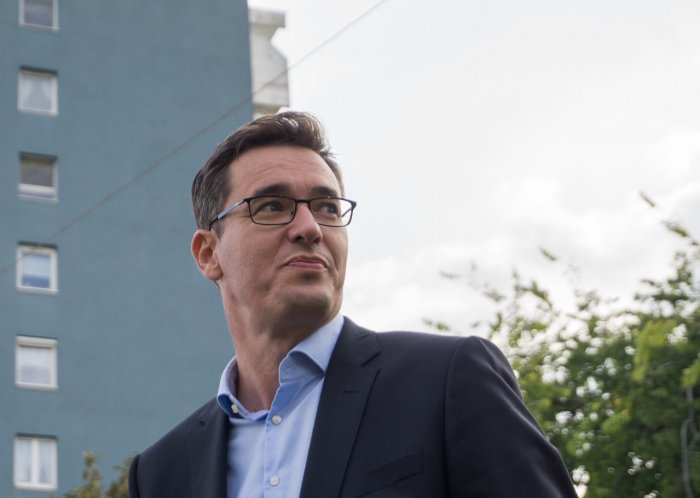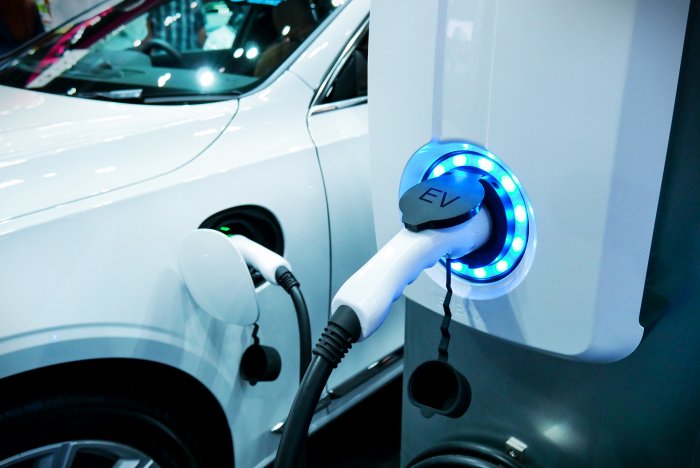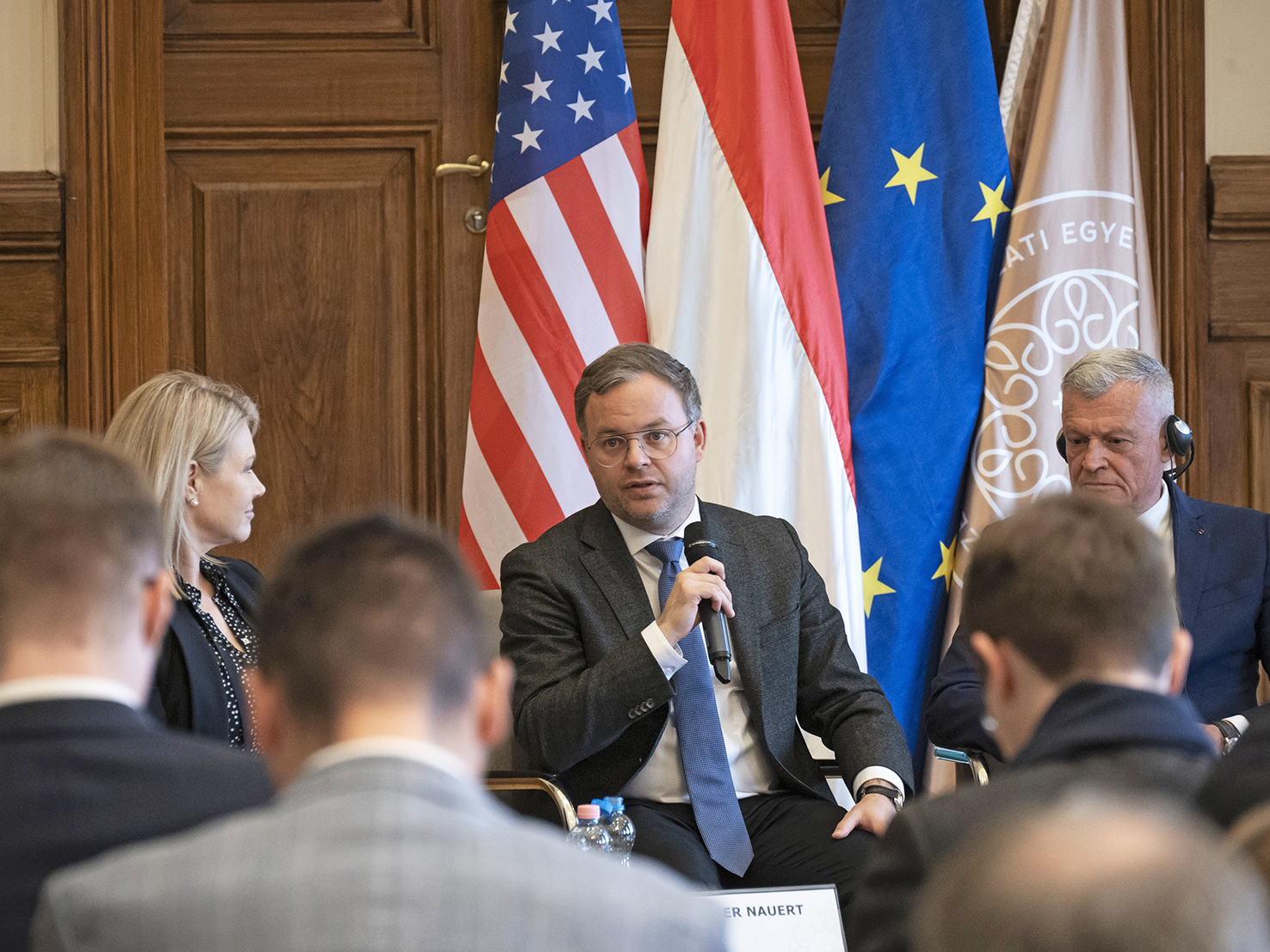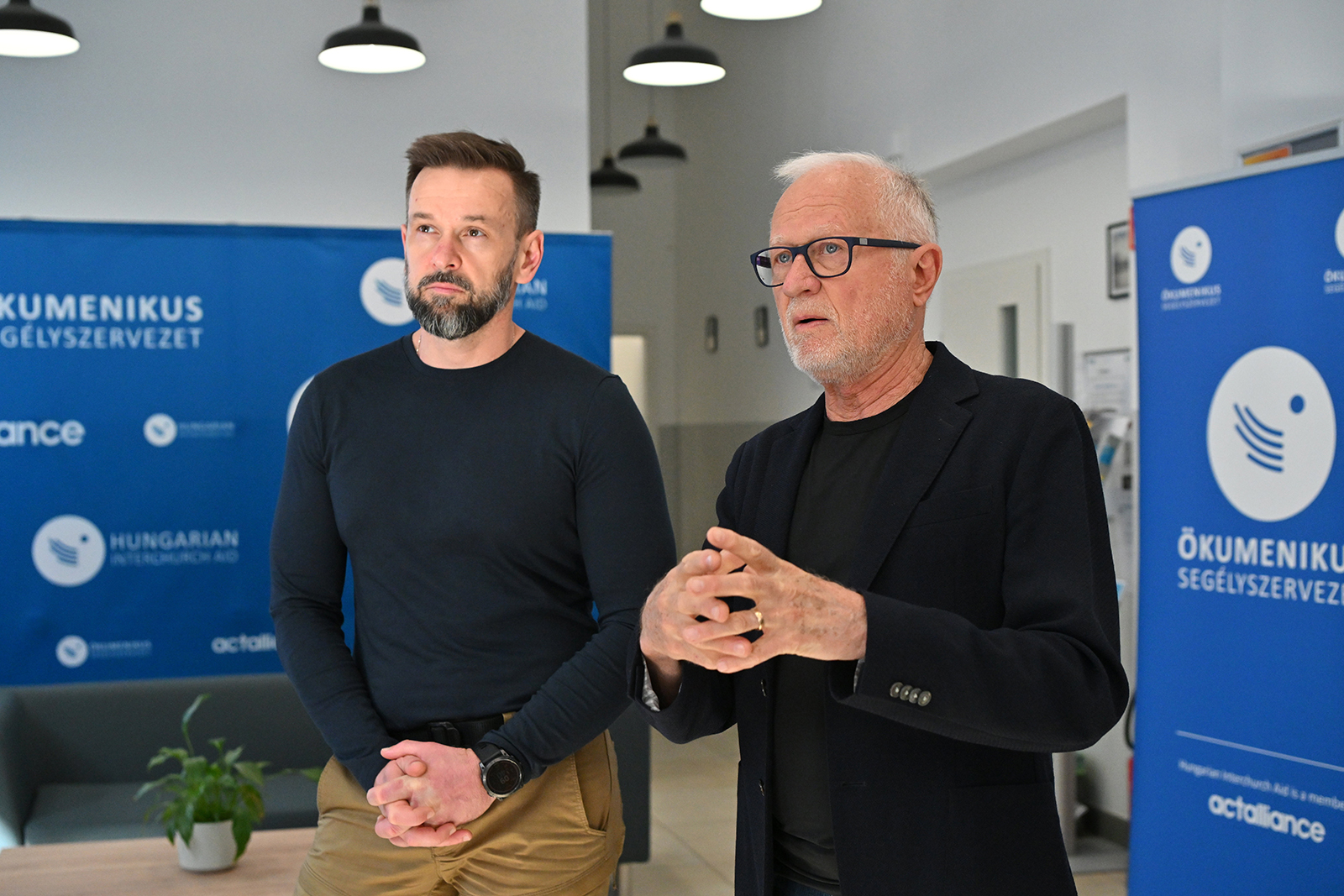PM Blames Low Growth on War, Speaks With Zelensky

Volodymyr Zelensky and Viktor Orbán spoke by phone on May 8.
Photo by Dmytro Larin / Shutterstock.com
Prime Minister Viktor Orbán blamed the ongoing war in Ukraine for holding back Hungary’s economic expansion in an interview with Kossuth Rádió on May 3. ‘If we weren’t in a wartime environment, then economic growth wouldn’t be 2.5%, it would be double,’ the PM said.
Spurred by Russia’s invasion of Ukraine in February 2022, countries on the eastern flank of the North Atlantic Treaty Organization have significantly bolstered their defense spending. While Poland led the rearmament surge, at 3.9% of economic output in 2023 based on NATO figures, Hungary also increased its defense expenditures above the 2% NATO guideline to 2.43% of GDP last year.
Orbán warned that if the war continued into the following year, this level of spending would no longer be sufficient.
“If we have to calculate with the war in ’25, too, then defense expenditures in ’23 and ’24 won’t be enough […]. We’ll have to raise that spending, and if we have to raise that, then there will be less for other areas,” he warned.
Hungary still strongly opposes any Western military and financial support to Ukraine due to concerns about the conflict spilling over into Europe. The latest proposal by NATO involves long-term military support for Ukraine against Russia through EUR 100 billion to be paid out over the next five years, and the military alliance taking over some coordination work from a U.S.-led coalition known as the Ramstein group.
At a regular press briefing on June 9, Gergely Gulyás, the head of the Prime Minister’s Office, made it clear that the government was opposed to Hungary’s participation in the plans, adding that it would “make every effort” to keep Hungarian soldiers and weapons from being sent to Ukraine. Regarding the plan’s timeline, Gulyás said the assumption the war would last for another five years was “in itself of concern.”
‘Crazy Mission’
Minister of Foreign Affairs and Trade Péter Szijjártó reiterated this sentiment at a meeting of MPs of governing Fidesz in Budapest on May 13. Acknowledging that Hungary couldn’t prevent NATO from carrying out its intentions, he said Hungary wanted “no involvement whatsoever” in what he called “NATO’s crazy mission.”
Meanwhile, Hungary is concerned by new sanctions proposed by the European Commission on Russia’s liquefied natural gas industry. While the measures wouldn’t directly prohibit Russian LNG imports to the EU, they would prevent EU countries from re-exporting Russian LNG after receiving it.
Hungary remains highly dependent on Russian exports and has long been against further energy sanctions. While Hungary did not oppose the measure outright at a recent meeting of EU ambassadors, Politico reported, Hungary said it would “not support anything that might have a negative impact on [the] EU gas market.”
Meanwhile, Orbán spoke with Ukrainian President Volodymyr Zelensky by phone on May 8, the PM’s press chief Bertalan Havasi said, according to state news agency MTI. Havasi said the parties discussed important elements of Hungarian-Ukrainian ties, focusing on war and peace. Orbán affirmed that Hungary was prepared to contribute to any initiative that could lead to peace, the press chief said. Havasi added that the sides agreed to continue bilateral consultations. posted about the call on.
“Hungary’s position is important to us when it comes to bringing peace and general regional security closer,” Zelensky wrote on X (formerly Twitter), according to the Warsaw-based Charter’97 Press Center. Zelensky emphasized Ukraine’s interest in good neighborly relations with Hungary and the development of cooperation in trade, energy and logistics.
“We agreed on further steps to resolve the entire range of bilateral issues on mutually beneficial terms. We discussed the European integration of Ukraine. I am convinced that Ukraine’s early accession to the EU will benefit both our states,” the president added.
This article was first published in the Budapest Business Journal print issue of May 17, 2024.
SUPPORT THE BUDAPEST BUSINESS JOURNAL
Producing journalism that is worthy of the name is a costly business. For 27 years, the publishers, editors and reporters of the Budapest Business Journal have striven to bring you business news that works, information that you can trust, that is factual, accurate and presented without fear or favor.
Newspaper organizations across the globe have struggled to find a business model that allows them to continue to excel, without compromising their ability to perform. Most recently, some have experimented with the idea of involving their most important stakeholders, their readers.
We would like to offer that same opportunity to our readers. We would like to invite you to help us deliver the quality business journalism you require. Hit our Support the BBJ button and you can choose the how much and how often you send us your contributions.










